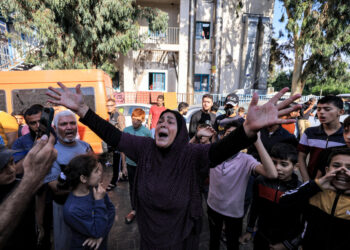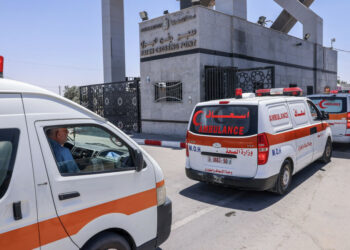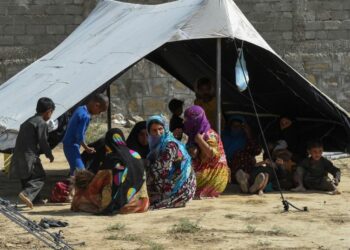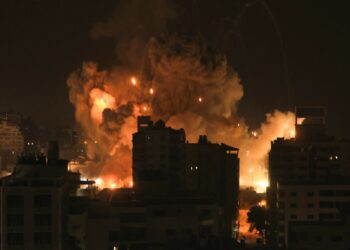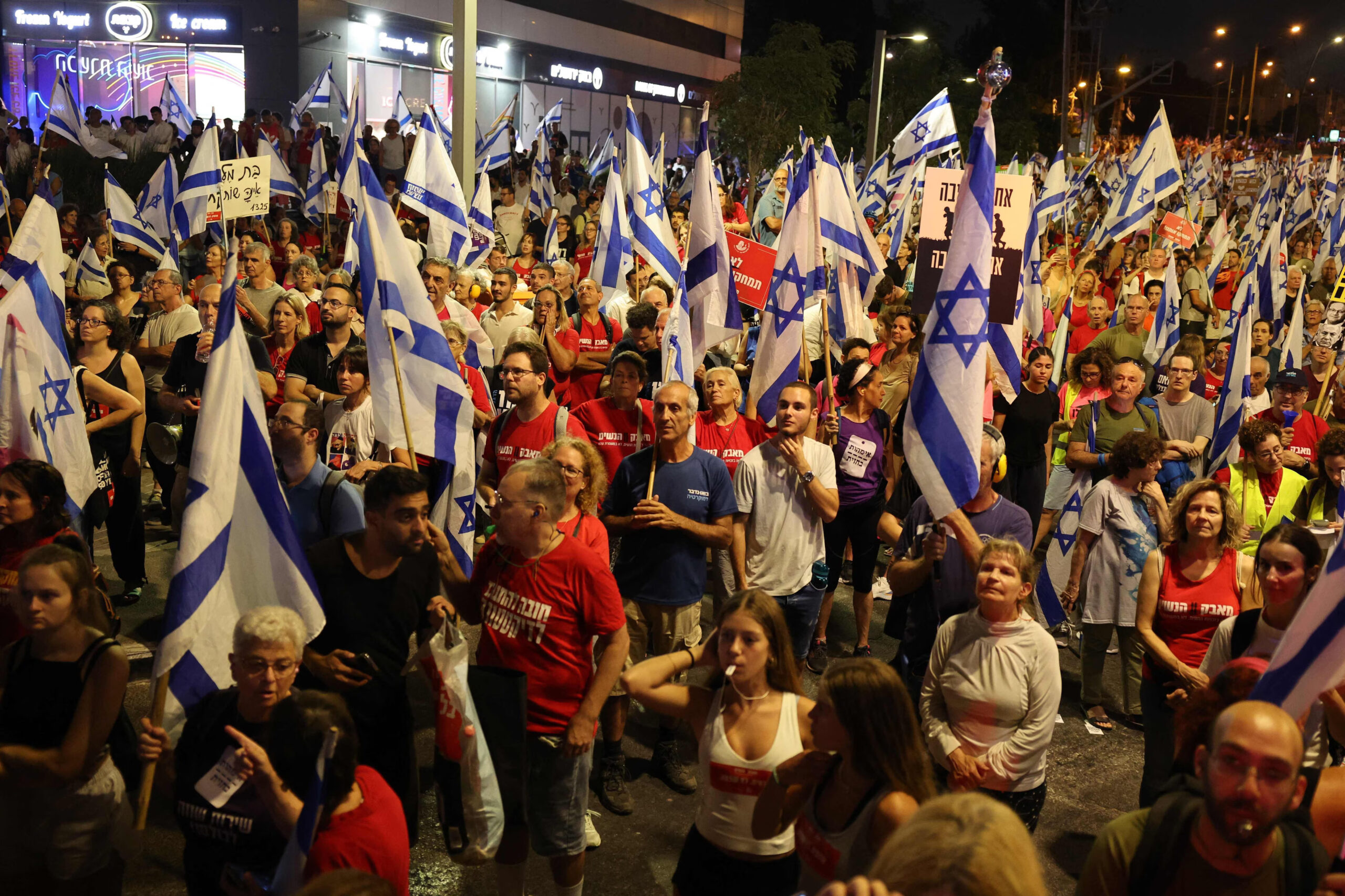JERUSALEM — A few weeks ago, I woke to the sight of the Jerusalem Light Rail – which passes through the occupied neighborhood of Shu’fat where I live – covered with a train-length sticker of the Israeli flag and the slogan “Jerusalem Unified, Jerusalem Uniting” in Hebrew. The light rail, running in the city since 2011, connects the illegal Israeli settlement of Pisgat Ze’ev in north Jerusalem to the city center, one of the many services Israel provides to its Jewish citizens as an incentive to live in settlements.
The “flag train” is part of a series of decorations marking two significant anniversaries in May and June that are celebrated by Israelis and mourned by Palestinians. One is the Nakba of May 1948, when Israel declared independence amid its mass expulsion of the Palestinian population. The second is the Naksa of June 1967, when Israel occupied the remainder of our homeland in the Six-Day War, causing a second wave of displacement. During these two months, we see Israeli flags unfurled everywhere: on cars, buses and houses, government buildings and Border Police jeeps. It reveals their constant need to declare: “This is ours!”
This year, the amount of flags, decorations and lights have exceeded previous ones. That is because this year is special, as it marks 50 years since the occupation of the remainder of the eastern part of the city in what Israel calls the “unification of Jerusalem.”
Beyond the symbolic, the occupation of Jerusalem has had serious consequences for its Palestinian residents. It was immediately after the 1967 war that Israel began to implement its master plan for the city, known as Jerusalem 2020.
The goal of this plan is to turn Jerusalem into a city with a 70 percent Jewish Israeli population and a 30 percent Palestinian one, reminiscent of the redlining and racist housing practices employed by local governments in the U.S. under Jim Crow. In order to achieve that goal, Israel employs a variety of policies, policies first implemented during the Nakba against Palestinians living in places such as Musmus, the village I am from, located in the north of present-day Israel. My village was occupied in 1948 and, immediately after the war ended and the state of Israel was declared on our lands, the Israeli authorities started implementing practices that years later would be put to use in Jerusalem.
Around Musmus, forests were planted as barriers to our village’s natural growth, just like Israeli “national” and “municipal parks” have been created to suffocate Wadi al-Joz, al-Eisawiyah, a-Tur, Silwan and other Palestinian neighborhoods and villages in Jerusalem. When the people of my village apply for building permits from the Israeli planning authorities, they are rejected. Should out of necessity they build anyway, their homes are demolished. The same applies to Palestinian Jerusalemites, who see settlements expand around them but cannot get permission from the occupation to build on their own land. When they do, their homes are demolished, often with Israeli courts ordering them to destroy their own homes or pay hefty fines.
In the years just after the Nakba, the farming land of Musmus was confiscated by Israeli authorities and given to nearby Jewish-only communities that had recently been established. In the same manner, lands belonging to Palestinians in the rural areas of Jerusalem have been strategically confiscated since the 1967 occupation.
Musmus has nearly 3,500 residents but 69 years after being taken over by Israel, it does not yet have a high school and youth have to travel to another village in order to learn. Similarly, 8,000 Jerusalemite children do not have a place to go to learn due to the severe lack of schools, intentionally designed by the occupation authorities in order to keep the Palestinians uneducated, poor, and thus easier to control.
The list of similarities is long and they are not by chance. While the 50th anniversary of the 1967 occupation is deservedly receiving much attention, in the collective memory of Palestinians, the occupation began many years before that. Between 1947 and 1949, what Israel calls its “War of Independence” resulted not only the occupation of Musmus, but in the killing of more than 20,000 Palestinians, the total destruction of more than 500 Palestinian villages, the expulsion of more than 750,000 Palestinians, and the theft of 78 percent of our homeland that was declared on May 15, 1948 as the State of Israel.
During those years, Jerusalem saw the complete ethnic cleansing of Palestinians from the western side of the city. For example, Zionist militias relentlessly attacked the village of Lifta beginning in November 1947, leading to its total evacuation in February 1948. A few months later, in April, more than 100 Palestinians were massacred by Zionist forces in Deir Yassin. Refugees from these villages who today live in the eastern side of Jerusalem see their few surviving houses standing at the Western entrance to the city, but cannot go back to them. Instead, they live under an occupation that has but one goal: to expel them from Jerusalem entirely.
As the infrastructure of occupation in Jerusalem continues to grow at the intentional expense of its Palestinian inhabitants, those who support Palestinian aspirations for freedom and equality should not be shy to state the obvious: the Israeli occupation of Palestine is much older than 50 years. For Palestinians in Jerusalem, justice means not only living in dignity and self-determination free from Israeli military and bureaucratic occupation; it is also returning to Lifta and Deir Yassin. Just like in Musmus, their calendar reads 69 years.



